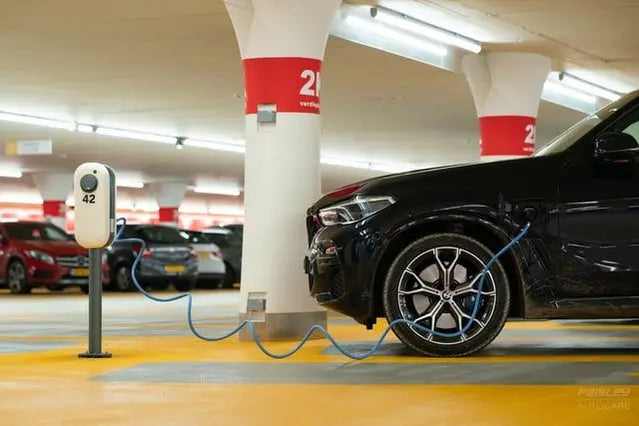Electric cars are becoming more common, but with this new popularity comes many risks. One such risk is that the lithium ion batteries used in these vehicles can easily ignite if damaged or overheated. Homeowners and drivers should take precautions to avoid these fires, like installing adequate fire protection systems for their vehicle and keeping it well-maintained.

Electric vehicles have been on the rise lately as a "greener" alternative to fuel-powered cars, but they pose a hidden fire risk. The lithium-ion batteries found in these vehicles are flammable and cause 90% of electric car fires, according to John Drengenberg from Underwriters Laboratories Inc. Lithium ion batteries can be found in laptops and cell phones as well as Electric Vehicles (EVs), where their properties make them ideal for powering an automobile. Unfortunately, these batteries can be hazardous if mishandled or damaged – leading to a fire hazard that many people don't know about. Many people also do not realize how quickly EVs can catch fire – especially during a crash – which may make it difficult for first responders to distinguish the origin of the fire.
These results can be used as guidelines for designing safety measures for EVs, but they do not represent a guarantee against thermal runaway or ignition. To reduce this risk even further, it is important for drivers to keep their vehicles well-maintained, fixing any damage to the battery as soon as possible. When a vehicle is involved in a crash, firefighters should use water rather than foam because the lithium ion batteries cannot be submerged in water without generating significant heat and pressure. Unfortunately, if EVs are being charged at the time of a fire, they could be more likely to explode due to overcharging. As EVs become more popular, it is important for people both within and outside of the industry to understand these risks better so that they can take proper precautions.
What are electric vehicles and how do they work
Electric vehicles are cars that rely on electric motors to power them instead of gasoline or diesel engines. The electricity can come from batteries, solar panels, or wind turbines. Most electric vehicles use lithium-ion batteries, which are also used in cell phones and laptops. These batteries are flammable and can easily ignite if damaged or overheated.
The benefits of electric vehicles
- Electric vehicles are much more environmentally friendly than fuel-powered cars.
- Electric vehicles have a smaller carbon footprint than fuel-powered cars.
- Electric vehicles are cheaper to operate and maintain than fuel-powered cars.
- Emotional benefits:
- Owning an electric vehicle is a statement of support for renewable energy sources.
The risks of electric vehicles
As electric cars become more popular, it's important for drivers to be aware of the risks posed by these vehicles. One such risk is the increased fire hazard posed by lithium-ion batteries, which can easily ignite if damaged or overheated. Homeowners and drivers should take precautions to avoid these fires, such as keeping their vehicles well-maintained and installing adequate fire protection systems.

How to avoid the risks of electric vehicles
1. Keep your electric vehicle well-maintained
2. Install adequate fire protection systems
3. Don't overcharge your electric vehicle batteries
4. Understand the risks of electric vehicles and take precautions




